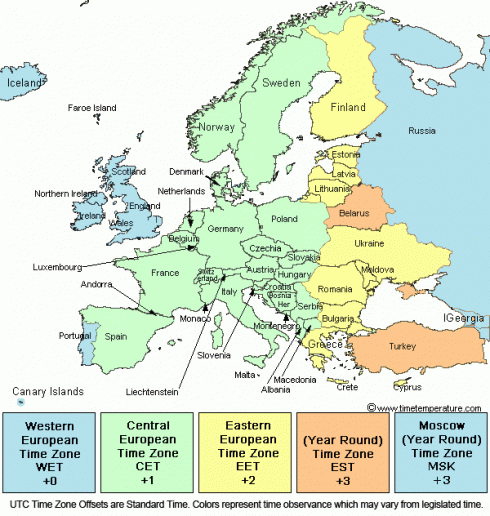SPAIN’S clocks, like those across the rest of the EU and the UK, have once again rolled forward an hour to Central European Summer Time.
And while this heralds the arrival of spring and means lighter evenings it is also a reminder that Spain, well all of Spain bar the Canary Islands which are an hour behind, is stuck in the wrong time zone and that efforts to correct it have stalled.
For the practice keeps Spain in the same time zone as Poland, Serbia and Hungary all nations whose capitals are more than 2,000km to the east and an hour ahead of the UK which shares a similar longitude.

For years now there has been a discussion in Spain about moving the clocks back permanently, ending a Franco-era legacy that was put in place by the dictator in an attempt to align the nation with Nazi Germany.
In 1940 as the Second World War raged, General Francisco Franco signed the order to turn the clocks forward ahead of a crucial meeting with Adolf Hitler at a train station on Spain’s border with France.
Although Franco refused to drag Spain into a new conflict so soon its own Civil War, he decided that in timezones at least, his nation would be aligned with the Axis powers.

The legacy of that decision continues to this day, long after the Allies defeated Nazism and more than 45 years after Franco’s own death and has had a profound effect on Spain’s culture.
For many this out of synch timetable explains Spain’s late eating habits, where lunch and dinner is eaten a good hour later than anywhere else on the continent.
By lengthening the daylight hours, it has meant Spaniards naturally want to eat lunch at 2pm and not dine until at least 9pm, thereby heading to bed later and putting them in need of a mid-afternoon siesta.

A parliamentary commission in 2013 recommended Spain return to GMT bringing it in line with the UK and Portugal, a move that would balance natural Circadian rhythms and make the nation more productive.
Across the European Union there is a movement to end the ‘daylight saving’ practice and abolish the twice yearly hour change completely.
In 2019 the EU parliament voted to abolish the biannual changing of the clocks giving nations the decision to choose between summer or winter timezones.
But the bill has been mired in bureaucracy and delayed until at least October 2026.
And while this might seem the obvious opportunity for Spain to revert back to the timezone that makes more sense geographically and stick with winter hours, popular opinion shows a preference for year round lighter evenings.

Although there is general consensus that the twice yearly changing of the clocks should be scrapped with 80% agreeing, a survey conducted by Spain’s Centre for Higher Research (CIS) carried out in November 2018 showed that 65% of those questioned would opt to stay in summer time.
Chief among those most opposed to a permanent change to winter time is the Balearic Islands, which are geographically the furthest to the east in Spain and would be most affected.
MPs from all parties in the Balearic parliament are calling for the archipelago, where the sun sets almost an hour earlier than in westernmost points of Andalucia, to stick to summer time year round.
They argue that keeping summertime would bring an economic boost, bringing more tourism during the winter months and keeping down electricity bills.
The Canary Islands, which get their own mention on the hour on every radio station, embrace the difference with the mainland and have also rejected any permanent time zone change for Spain.
READ MORE:
- The clocks go forward in Spain tonight. Could this be the last time?
- Valley of the Fallen: How archaelogists are planning a massive dig at Franco’s legacy
- Highway to hell: The tragic story of how thousands of people were slaughtered by Franco’s forces as they fled Malaga











